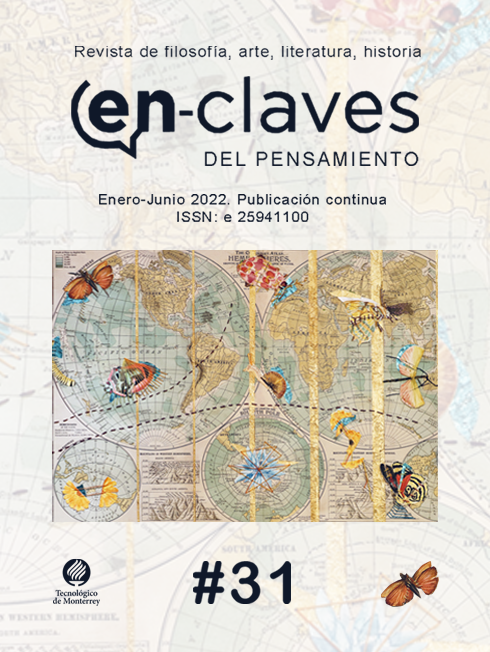Students with Long-term Diseases as a Learning Opportunity in the Reference Classroom
Main Article Content
On occasions when a child or adolescent falls ill or has an accident and is unable to attend school for a long period of time, certain socio-educational needs arise that must be addressed by the school. This paper argues that this situation can be beneficial for their classmates if they are given the opportunity to be part of this response. This work proposes different actions that teachers can carry out with their students to cover the needs that arise from the new situation, while at the same time working on curricular content and competences in the classroom.
Argumosa, Ana, y Herranz, José Luis. “La repercusión económica de las enfermedades crónicas: el coste de la epilepsia infantil en el año 2.000”. Boletín de la sociedad de pediatría de Asturias, Cantabria y Castilla y León, núm. 41 (2001): 23-29.
Baiocchi, A. “A Paediatric Oncology School Program”. En P. Deasy-Spinetta y E. Irving, Educating the child with cancer. Bethesda: The Candleligheters Cancer Foundation, 1993.
Barnes, Douglas. Active Learning. Leeds University TV: EI Support Project, 1981.
Bisquerra, Rafael. “La educación emocional y competencias básicas para la vida”. Revista de Investigación Educativa 21 (2005).
Bisquerra, Rafael, y Nuria Pérez. “Las competencias emocionales”. Revista de Educación XXL, núm. 10 (2007): 61-82.
Boles, Jessica, y Dennise Winsor. “My School Is Where My Friends Are: Interpreting the Drawings of Children with Cancer”. Journal of Research in Childhood Education, núm. 33 (marzo, 2019): 225-241. http://dx.doi.org/10.1080/02568543.2019.1577771.
Bonwell, Charles, y Eison James. Active Learning: Creating Excitement in the Classroom. Washington, D. C: The George Washington University, School of Education and Human Development.
Die Trill, María. “El niño y el adolescente con cáncer”. Psicooncología 85 (2003).
Fernández, María. “La pedagogía hospitalaria y el pedagogo hospitalario”. Tabanque: Revista Pedagógica, núm. 15 (2000): 139-150.
Grau, Claudia. Atención educativa al alumnado con enfermedades crónicas o de larga duración. Málaga: Aljibe, 2004.
Grau, Claudia, y María del Carmen Ortiz. La Pedagogía hospitalaria en el marco de una educación inclusiva. Archidona: Aljibe, 2001.
Katz, Lynn, Alisson Leary, David Breiger y Debra Friedman. “Pediatric Cancer and the Quality of Children’s Dyadic Peer Interactions”. Journal of Pediatric Psychology, 36, núm. 2 (marzo, 2011): 237-247. https://doi.org/10.1093/jpepsy/jsq050.
Lizasoáin, Olga. Pedagogía hospitalaria. Guía para la atención psicoeducativa del alumno enfermo. Madrid: Editorial Síntesis, 2016
Lizasoáin, Olga. Educando al niño enfermo. Perspectivas de la pedagogía hospitalaria. Pamplona: Ediciones Eunate, 2000.
López, Sandra, y Jose Antonio Camacho. “Intervención psicoeducativa con niños afectados de cáncer en educación primaria”. Variables Psicológicas y Educativas para la Intervención en el Ámbito Escolar 3, núm. 29 (2019): 227-234.
Murillo, Paulino. “Nuevas formas de trabajar en clase. Metodologías activas y colaborativas”. En Ana López y Lola Abelló (coords.), El desarrollo de competencias docentes en la formación del profesorado. Madrid: Instituto Superior de Formación del Profesorado Universidad de Sevilla, 2007.
Naciones Unidas. “Resolución aprobada por la Asamblea General el 25 de septiembre de 2015, A/RES/70/1.”. Organización de las Naciones Unidas, modificado por última vez el 21 de octubre de 2015. https://www.agenda2030.gob.es/recursos/docs/APROBACION_AGENDA_2030.pdf.
Pedraza-López, Paloma. Intervención educativa para integrar a un niño enfermo de LLA en E. I. Madrid: UNIR, 2013.
Rogoff, Barbara. The Cultural Nature of Human Development. New York: Oxford University Press, 2003.
Simeonsdotter, Agneta, Ingrid Pramling, Anna-Lena Hellström y Margaretha Jenholt. “Experiences of SKYPE Communication in Education and Research – Data Collection Concerning Young Children with Long-term Illness”. Early Child Development and Care 184, núm. 7 (2014): 1017-1030. https://doi.org/10.1080/03004430.2013.841154.
Van Roosmalen, Tanja. “My Student is Terminally Ill! What Now?”. The Netherlands: Sint Anthonis, 2021.













